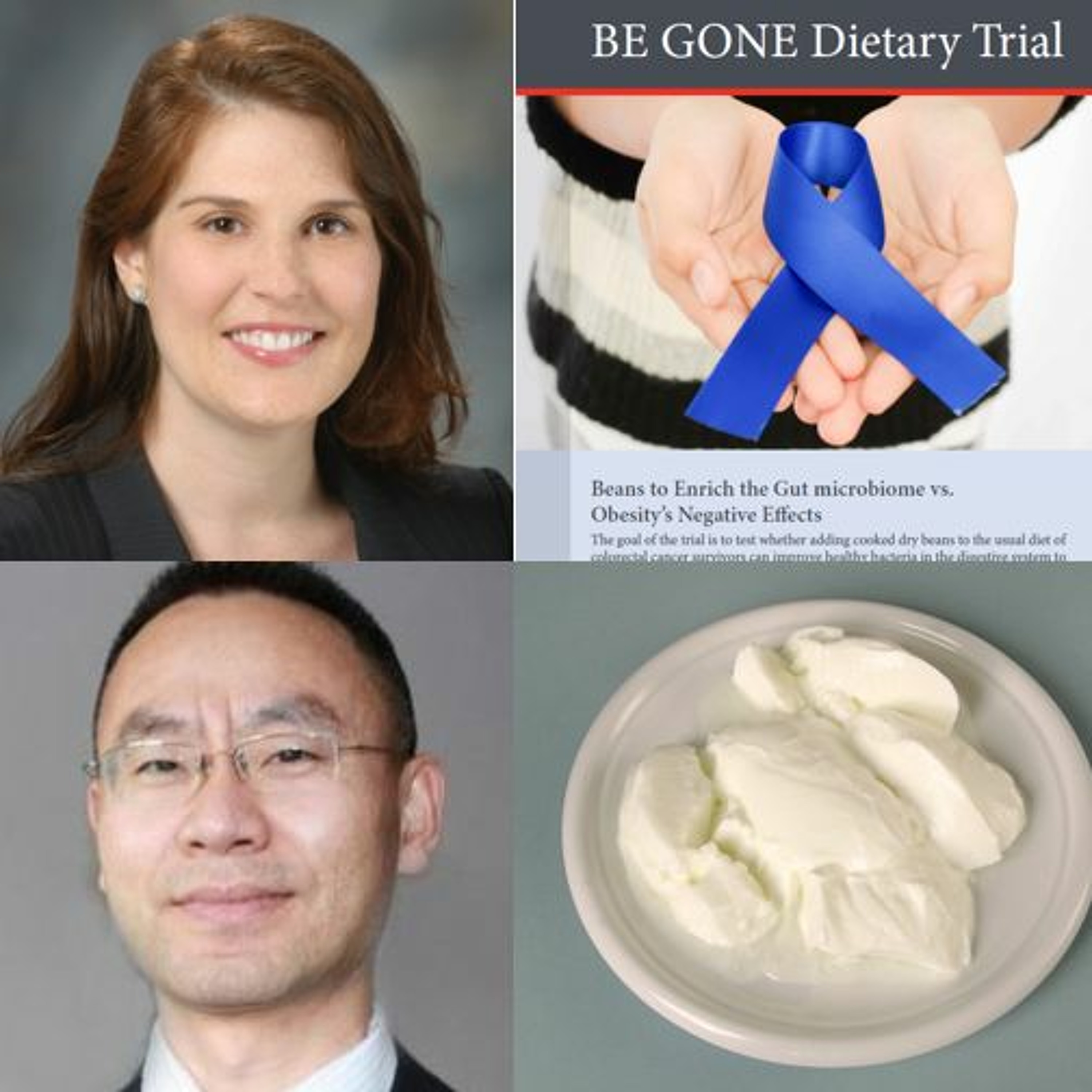Beans, beans, they're good for...cancer prevention? Yogurt too?

\u201cThat\u2019s the beautiful thing about diet. You don\u2019t have to have health insurance to make these changes. You don\u2019t need a physician to make these changes. You just need the right motivation and the long-term commitment.\u201d\n\nWhat you do need, though, is evidence. American Cancer Society grantees Carrie Daniel-MacDougall, PhD, MPH, of the University of Texas M.D. Anderson Cancer Center and Xuehong Zhang, MD, ScD, of Brigham and Women's Hospital, are working to provide evidence that could have huge implications for colorectal cancer research. \n\n3:10 \u2013 Carrie Daniel-MacDougall on her ACS-funded research: \u201cWith the dawning of the gut microbiome era, knowing that dry beans have various prebiotic properties, I thought it was important to revisit this question again with these new technologies and also with this growing population of colorectal cancer survivors, particularly overweight and obese survivors, who may be at risk of recurring or developing another obesity-related cancer.\u201d\n\n5:40 \u2013 Xuehong Zhang describes his colorectal cancer studies: \u201cThe objective of this proposed research is to determine the association between yogurt intake and colorectal cancer risk and survival. We hypothesize that higher yogurt consumption can decrease the risk of developing adenomas\u2014the precursor to colorectal cancer\u2014as well as improve survival among patients with colorectal cancer.\u201d\n\n10:05 \u2013 On some of the challenges of recruiting colorectal cancer survivors, even at one of the largest cancer centers in the country: \u201cWe\u2019ve also learned that some of them kind of have PTSD in terms of returning to the hospital for blood draws and participation in the study\u2026 Beyond all the science and the mechanism, there\u2019s a behavioral aspect to working with people and working with patients that\u2019s important to recognize.\u201d\n\n16:00 \u2013 Next steps for Dr. Daniel-MacDougall: \u201cThe next phase, if we find that this is promising, is to go multi-center, and that\u2019s going to be a bigger, scarier, harder-to-get grant\u2026We\u2019re also always building up the next thing or how we\u2019re going to get to the next step and that\u2019s trying to do more dietary assessments and dietary-based research in cancer patients going on to active treatment.\u201d\n\n18:55 \u2013 New directions Dr. Zhang would like to take his study: \u201c\u2026Lactic acid is much (lower) in yogurt and is more palatable to individuals with lactose intolerance, so that motivates me to think more about how to expand the current research into other racial and ethnic groups, especially among the black population.\u201d\n\n21:35 \u2013 What can we tell patients about primary prevention of colorectal cancer? \u201cThe vast majority of colorectal cancer can be prevented by maintaining healthy weight, being physically active, and having a healthy diet\u2026 To me the healthy lifestyle is the key to colorectal cancer primary prevention. Clearly, screening and early detection is also important.\u201d\n\n\u201cBecause it\u2019s so accessible, because everyone eats and everyone has fun tweaking their diets, sometimes people forget it\u2019s science that we actually study quite intensely in school. And so you\u2019ll give someone your take on something and they\u2019re like, \u2018Well, but you know I\u2019ve heard this ketogenic diet is the thing I should be doing.\u2019 Our challenge is to keep it scientific and evidence-based\u2026it\u2019s a huge challenge that not a lot of people face in other fields.\u201d